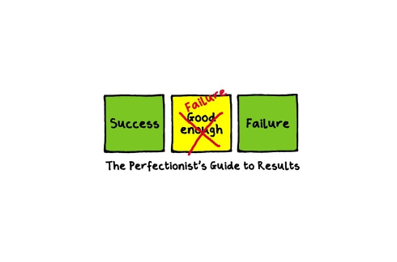Does your son or daughter have unrealistic standards & high expectations?
Do they show signs of Perfectionism?
Do they often not feel good enough, or think they should have worked harder?
Teenagers and young adults studying for their school exams or at university often want everything perfect, and want to perform at their best. They can often feel compelled to achieve or strive for perfection, and when they don’t meet those standards, they think “I should have worked harder” or “I’m such a failure”.
Perfectionistic tendencies and high standards are often seen by this age group, but why would your child want to overcome their perfectionism?

Being a perfectionist can often motivate some students, giving them the drive to do well in their assessments and exams. However sometimes perfectionism can get in the way of actually getting things done. It can lead your child to procrastinate or go over things constantly, leading them to burnout. Is it possible that they may have been succeeding in spite of their high standards, and not because of them.
Being afraid to fail is a common feeling perfectionists experience, and they often tend to base their self-worth off striving for and achieving their high standards. e.g. if I do not do well on an assessment, I’m not good enough. This is like placing all of your eggs in one basket – they’re relying on doing well every time!
How to guide your child towards realistic expectations –
- A great activity to help with perfectionism you as a parent can guide your child towards, is have them spend some time doing activities or engaging in aspects of their life that are not achievement-related. See if they gradually gain importance in their sense of self-worth.
- Are the high expectations that they set for themselves realistic and flexible? Remind them that learning implies imperfection and making mistakes. Making a mistake does not equate to being a failure, and it is not a case of them having no standards.
- Spend some time with your child to set some realistic goals together – change their mindset to have realistic expectations. They are putting so much pressure on themselves, and for what?
- Help your child focus on doing things well, as opposed to perfectly – experiment with making a mistake and see what the realistic consequences are.
- Prompt them to be aware of self-critical talk. e.g. “I’m so stupid, I can’t do anything right!”. Practice changing the way they speak to themselves. If it’s not okay to say it to a friend, why is it okay to say to yourself?
- Guide them to turn the self-critical talk into motivational self-talk. e.g. “I would like to have finished this assignment by now, but I will focus on taking things one step at a time to get closer to completing it”.

Has your son or daughter ever considered the cost of being a perfectionist? The countless hours spent perfecting work, the self-criticism that comes with not meeting their own standards and the enormous stress and pressure they place on themselves to achieve?
If you feel that perfectionism is beginning to interfere with your teenager or young adult’s studies, causing distress and additional pressure, speaking to one of our clinicians may help guide your child in the right direction.
With the right support, a therapist can help your child effectively gain control over their perfectionism, so they can flourish without the pesky hindrance of perfectionism!

